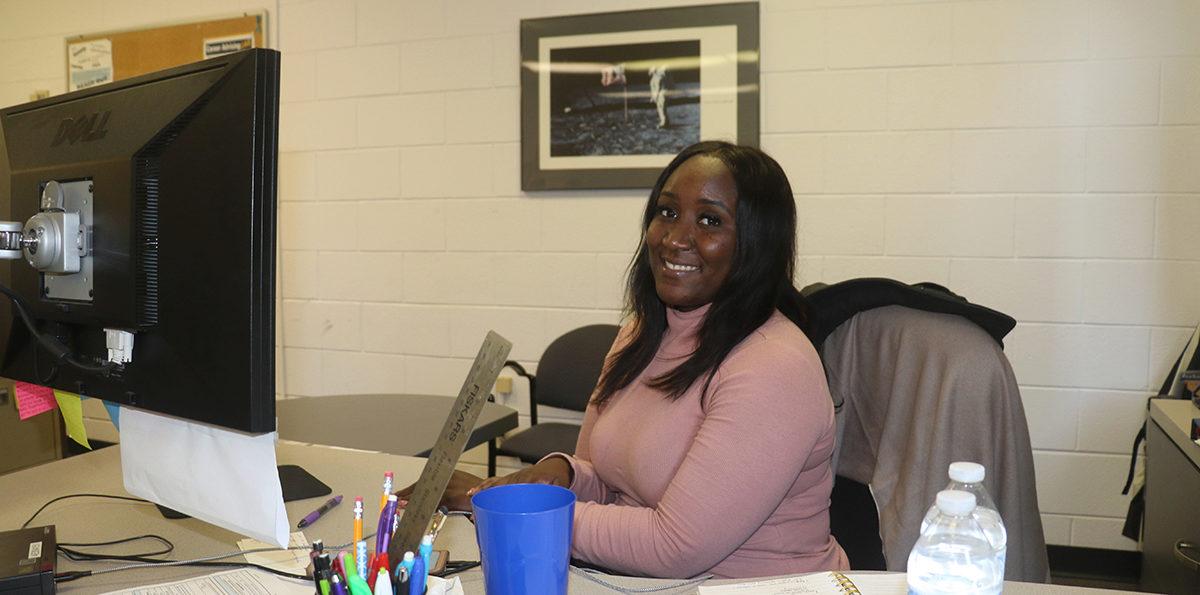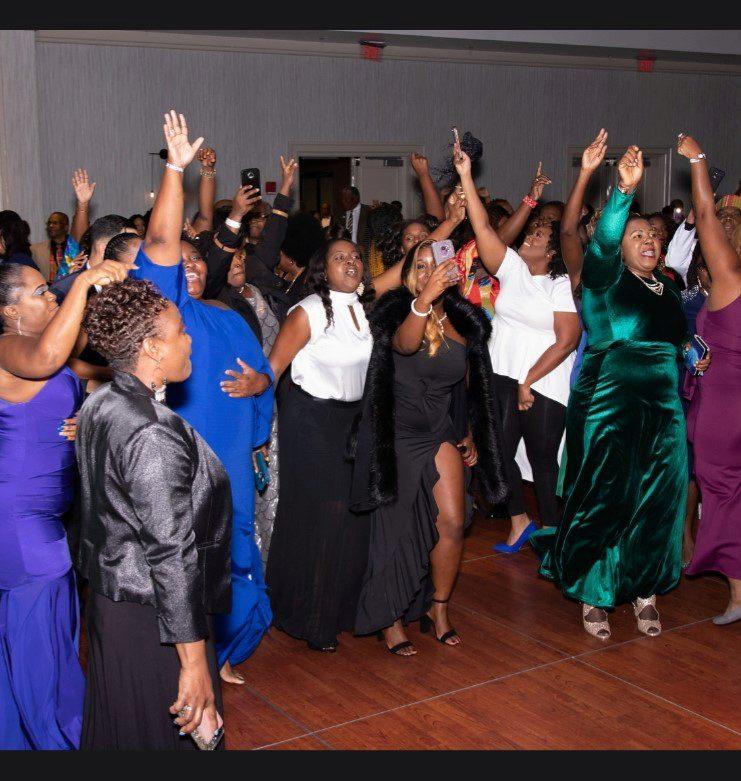
The balancing act that so many Americans manage each day finds a subtle grace in Kamaria Richards, the academic program assistant in the Daniel Guggenheim School of Aerospace Engineering. Born in Nashville, she's excelled in all of the ways that cast her as the perfect American dream: she took tap dance, ballet, and jazz lessons as a teen and was on the cheer and dance team of her high school before earning her undergraduate degree in international affairs at the University of Georgia. She's currently working on her master's degree in public policy with a focus in non-profit management. A doctorate - or a law degree - is not far off.
Boundless energy, full of ambitions, and...a proud Antiguan American.
"I love my country. I love my people. And I'm still considered a citizen of Antigua and Barbuda because my parents [Worthson and Charmion Richards] are from there," she says in a voice that is both dulcet and firm. "It is something that took me awhile to figure out, but it is deeply a part of who I am."
On Saturday, November 16, Richards invited the world to celebrate that heritage in all its glory during the Antigua and Barbuda Association of Georgia's (ABAG) 16th Annual Independence Banquet - an event that marks the 38th anniversary of island nation's independence. A member of the ABAG's executive committee, Richards helped plan the gala, which was infused with Caribbean delights: the Panasonics Steel Drum Orchestra, the Caribbean Dancers of Atlanta, and a visit from the Team Antigua Island Girl's Rowing Team.
"The Island Girls rowed from Spain to Antigua in 47 days, and each of them had struggles that they had to overcome along the way," says Richards. "They are so inspirational."
Richards knows a thing or two about inspirational Antiguans. Her own parents, Worthson and Charmion Richards, set forth to the United States with little more than the ambitions they carried in their hearts: to further their educations, to get green cards, and to earn citizenship. Both had grown up in relative poverty, but neither was the product of pessimism. .
"I don't think they had a vision of what they ended up doing. They just wanted to improve their circumstances. So, when they came to the United States, they earned their bachelor's degrees. When they went to graduate school, they graduated together -- the valedictorian and salutatorian of their graduating class. They just worked hard."
Hard indeed. Richards' father earned another master's degree in divinity, and her mother earned a doctorate in higher education with a focus on succession planning.
Her parents neither pushed nor ignored their Antiguan roots. They didn't have to. Both Kamaria and her brother Andwele Richards, were surrounded by strong role models, like her aunt, Ulyda Joseph, and her maternal grandmother Icilma Joseph, who took care of the children while the parents were working. After raising six children herself, Icilma ("Mama" to her grandchildren and great-grandchildren) happily doled out love and discipline in equal measures to her wards. Stories about the family's past were always sprinkled in.
"I feel like I was made aware of my culture, but I didn't fully understand what it meant to me - the American piece, the Antiguan piece - until I started exploring it myself."
That exploration started in high school, when Richards added soca music and rhythms to her dance routines. Described by some as the "soul of calypso" soca is a uniquely Caribbean genre that brings together guitars, drums, synthesizer, and ...joy. Richards was hooked. So were audiences.
"I started up a dance group with a couple of friends, and the complexity of our dance routines was really up there," she said. "People wanted to join us, every year."
Richards' continued to choreograph and perform when she moved on to college. She also became more connected with other second-generation Caribbean students who, like her, were curious about their own connection to two islands (Antigua and Barbuda) so far away. Freshman year she joined the Caribbean American Student Association where she would go on to serve as the dance coordinator for two years. She also decided to enter the CASA's International Pageant, where she vied for the title of 'Miss Antigua.'
"That's when it kind of hit me: 'What gives me the right to represent Antigua when I wasn't born there?' That's when I had to really embrace my identity," she says.
As a requirement of the competition, contestants had to give a speech about their chosen country. This gave Richards an excuse to interview her parents and her grandmother about their memories of, and their feelings about, home.
"They told me so much about the islands of Antigua and Barbuda. Things about what the independence meant to them, growing up. The traditions they celebrated. And about Devil's Bridge - a rock formation over the ocean where slaves used to jump [to their deaths] rather than being captured. Just sitting with them and hearing their stories made me feel the connection."
The stories continue, but they are now formed - and told - by Kamaria – a passionate child of Antigua, citizen of the U.S.:
"I'm trying to push myself in new directions because my public policy degree has opened things up. If I pursue a doctorate, it will possibly be in public policy focusing on educational policy, but, even then, there are different options. Like becoming a dance coach because dance has meant so much to me. Eventually, I want to start a dance non-profit - something where I can help empower girls in my community with information about self-care, community service, and using their passion for dance to go further in life."
